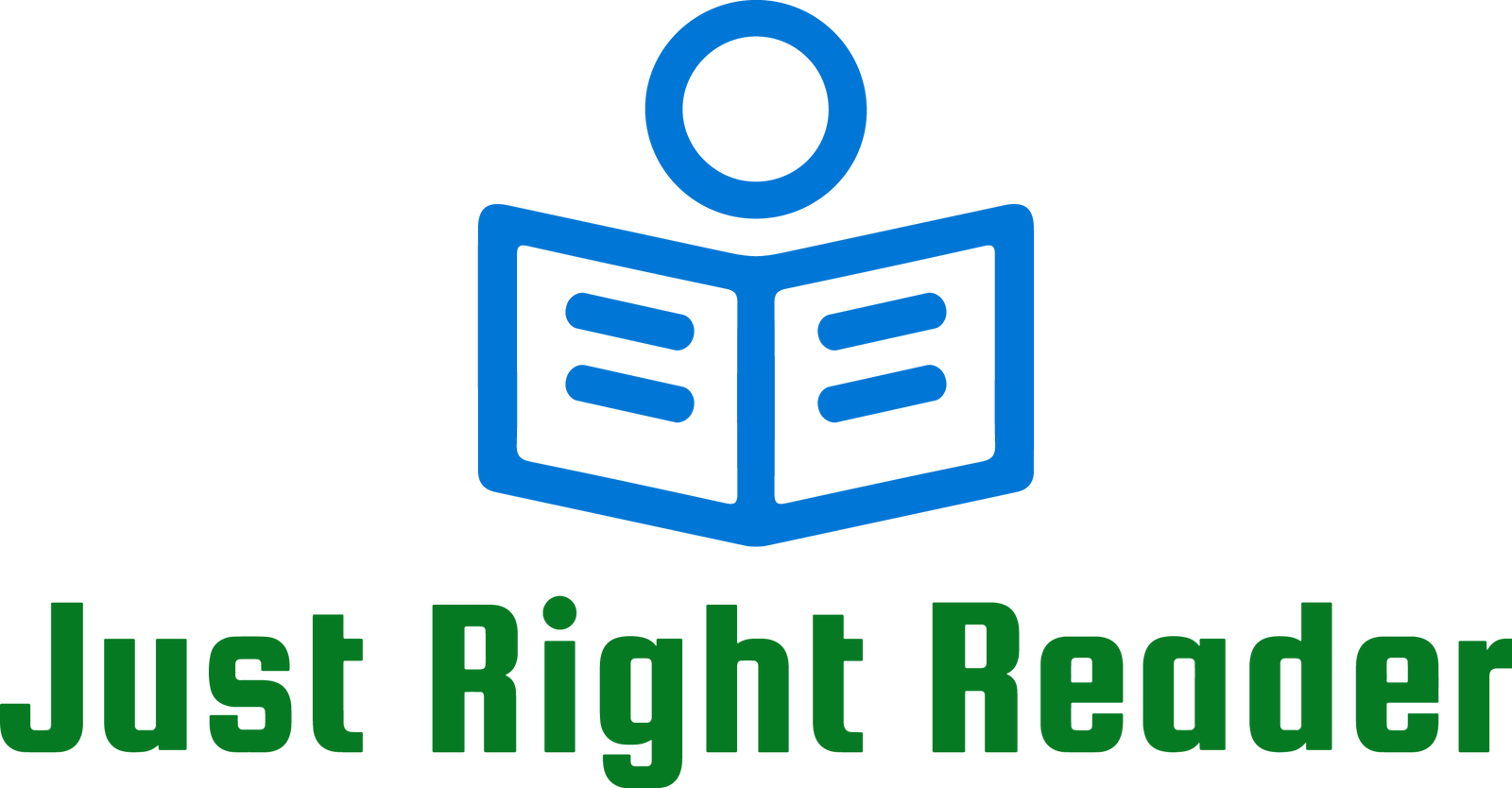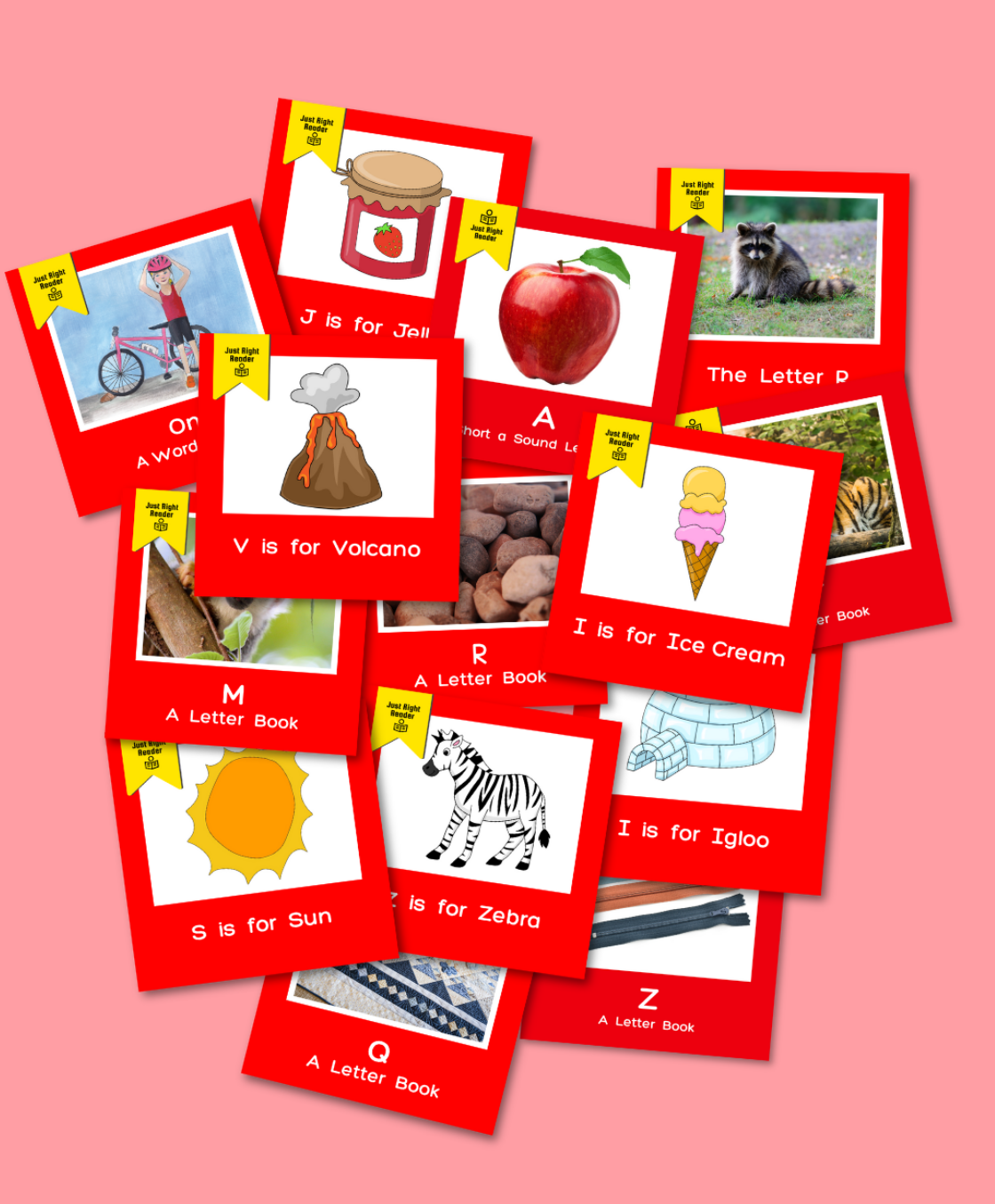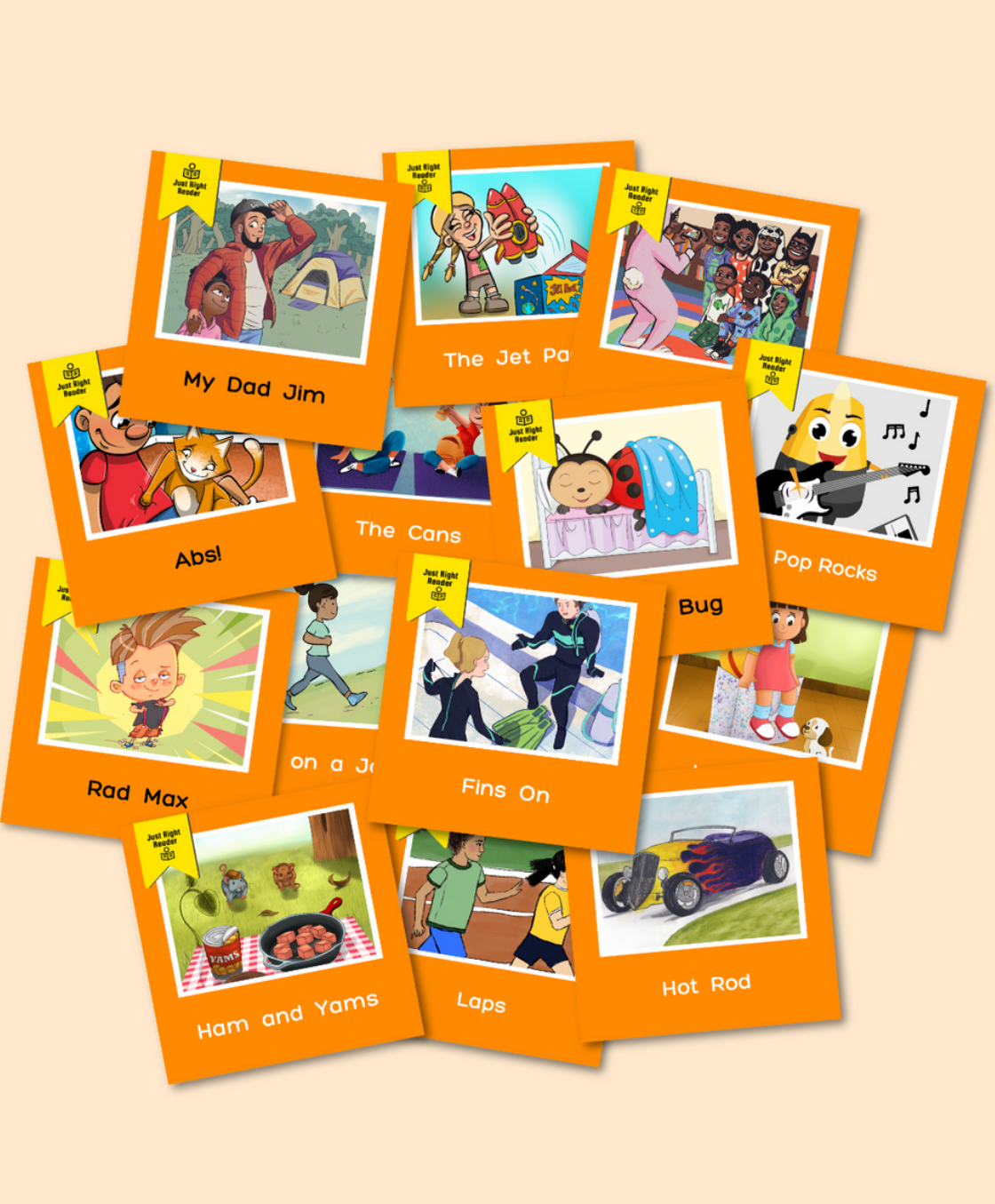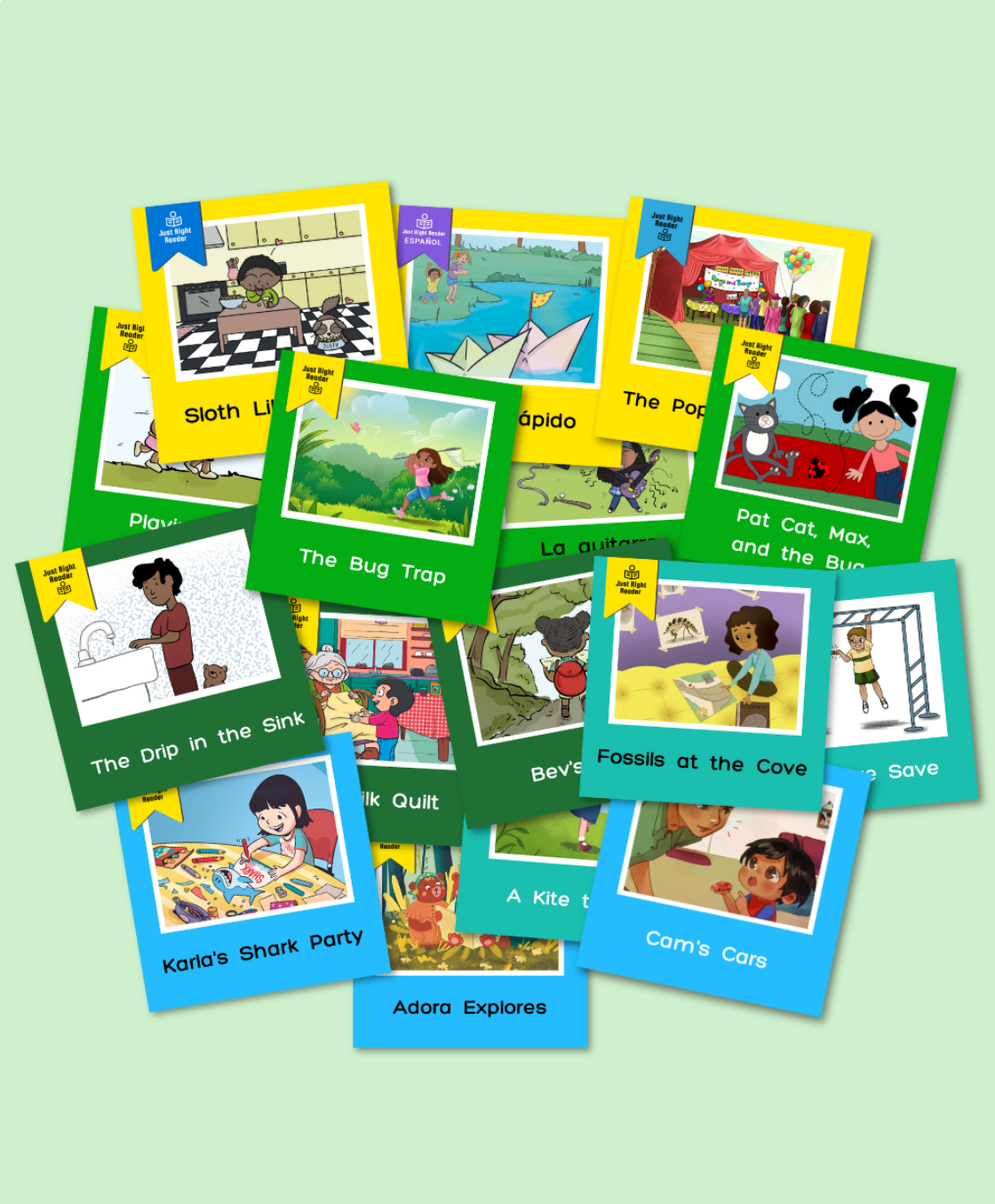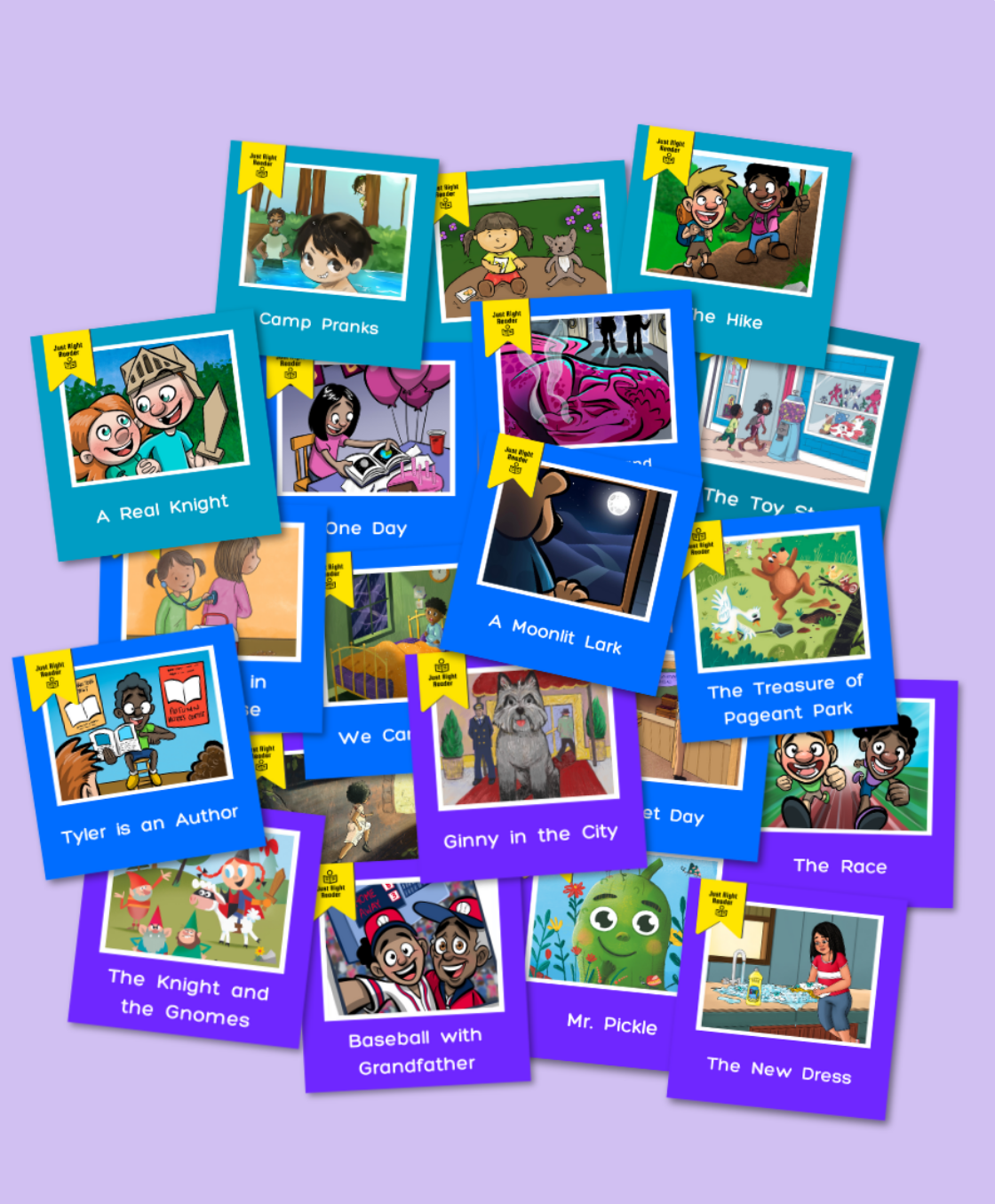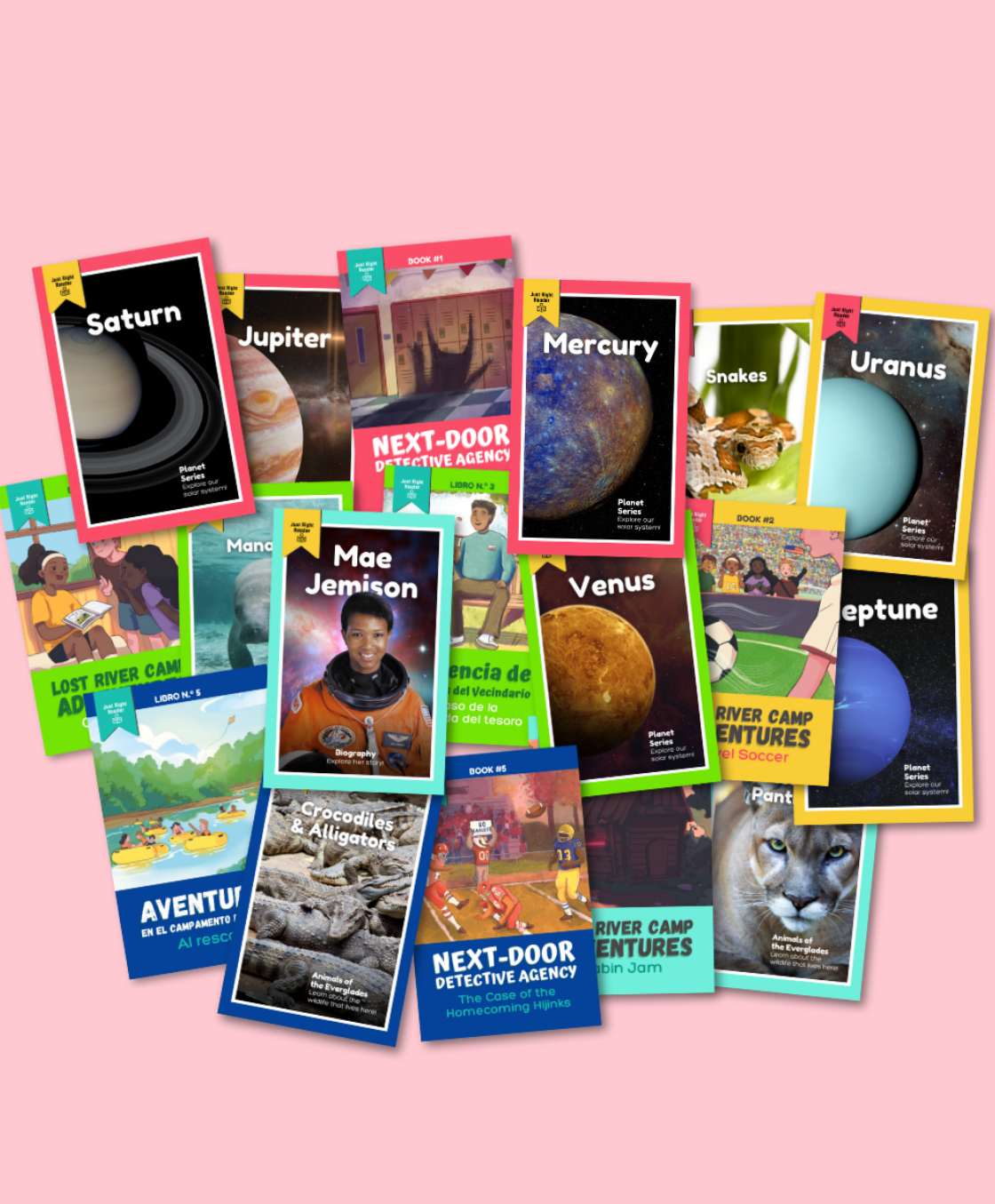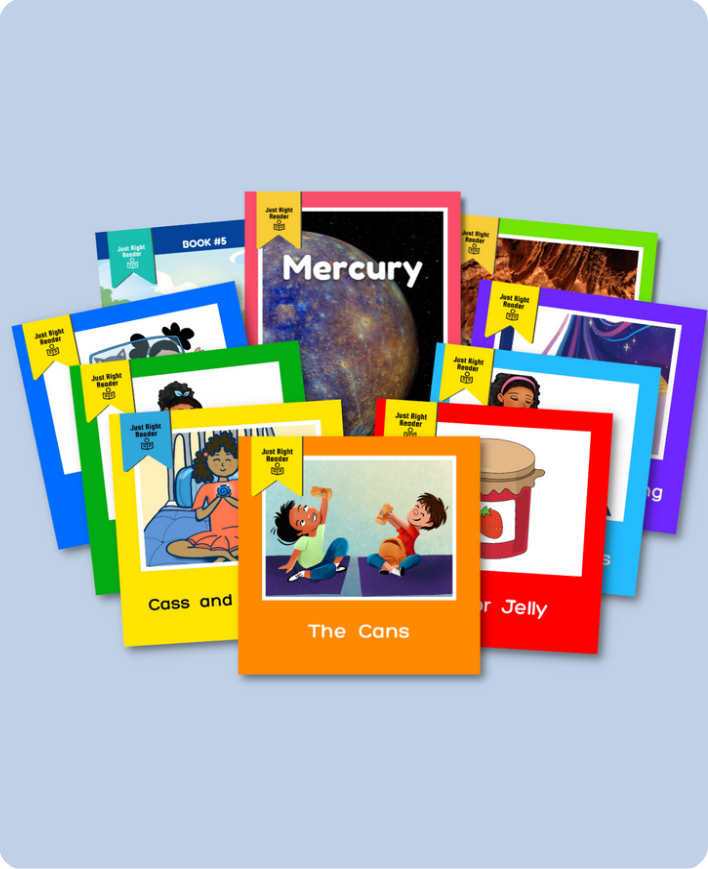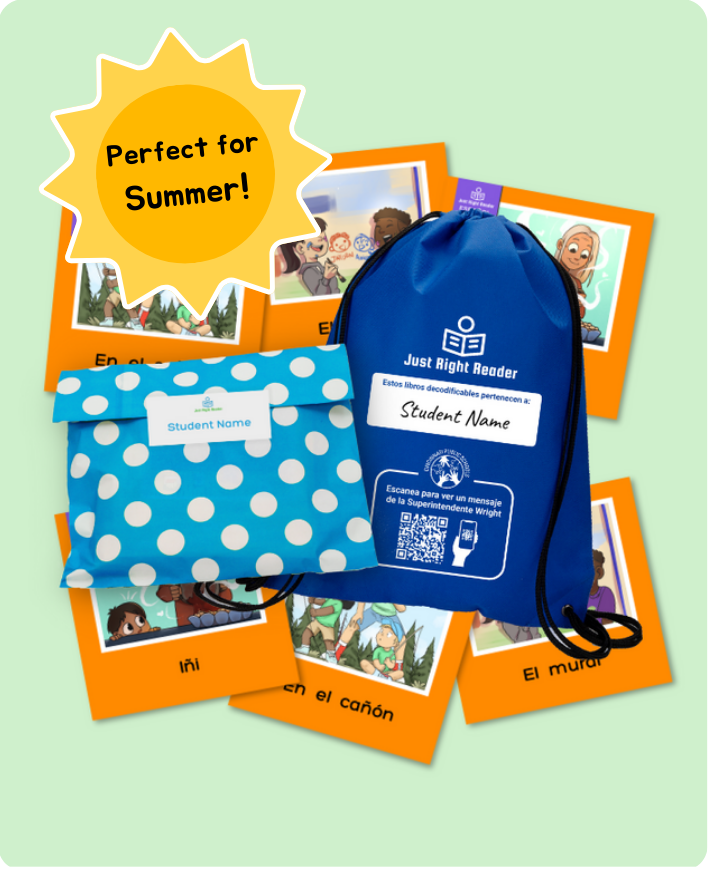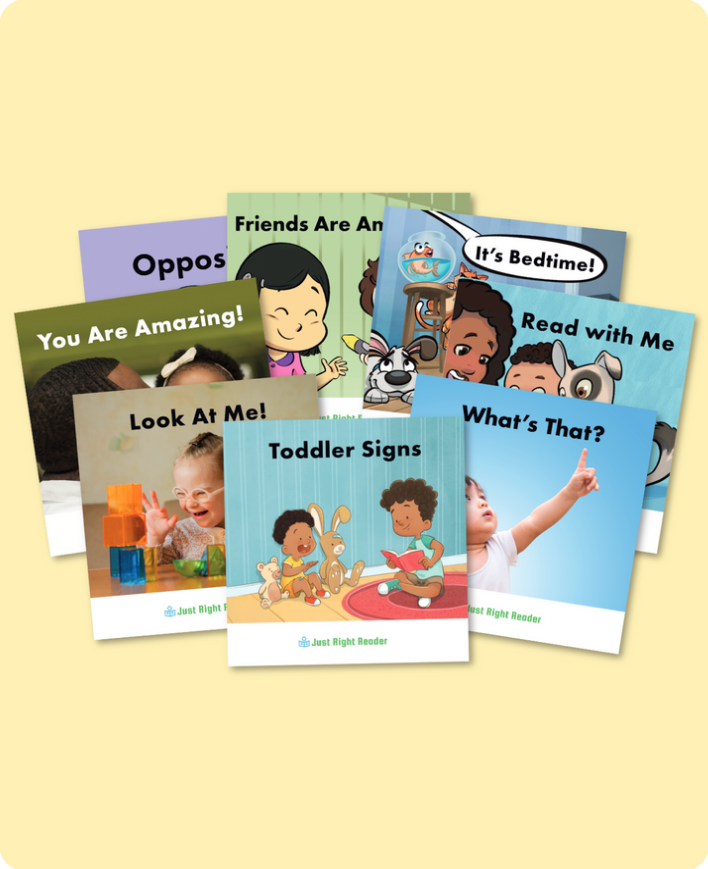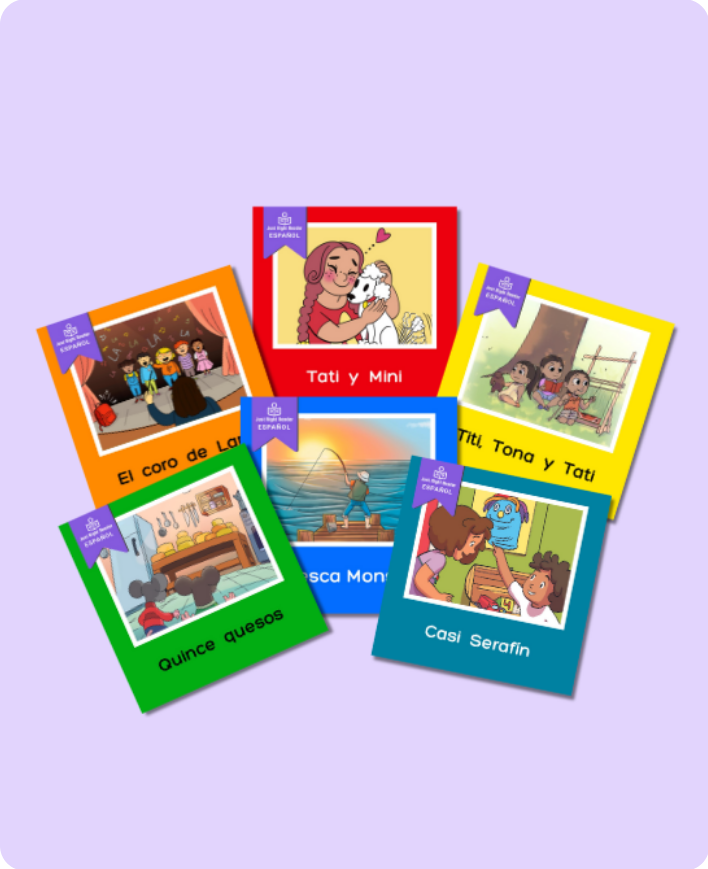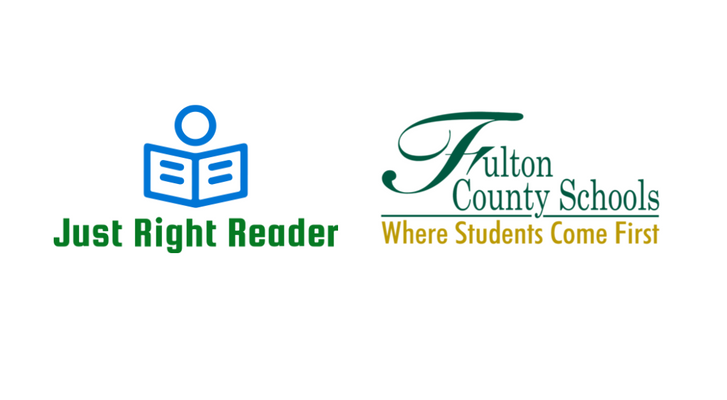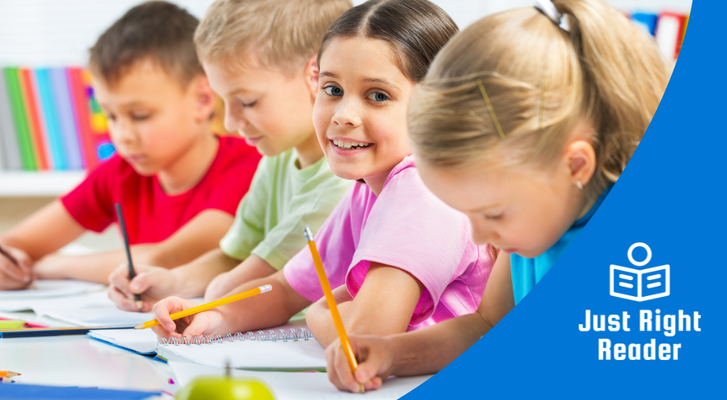
Just Right Reader uses the “Windows, Mirrors, and Sliding Glass Doors” approach to create diverse decodable books that reflect students’ lives.
Living in a nation filled with such diversity, the opportunity for students to see themselves and those of different backgrounds and cultures represented in books is crucial. Diverse characters and relatable stories in children's literature can play a vital role in shaping a student's reading journey.
The Importance of Representation and Diversity in Children's Books
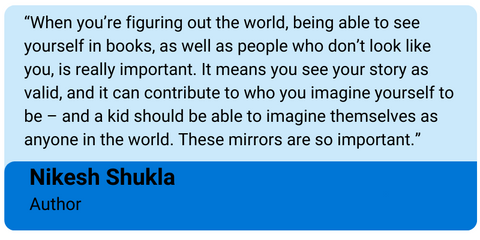
Our students spend the majority of their day in classrooms across the nation. The books available to them present a valuable opportunity to incorporate our students' languages, cultures, histories, and voices into our educational settings. It is a chance for students to become immersed in different experiences and perspectives that reflect both themselves and others - which can lead to increased self-esteem, empathy, and motivation to read.
Researchers and literacy experts have found:
- Students with higher motivation to read tend to perform better academically (Guthrie et al., 2001; Guthrie et al., 2012).
- Stories that are authentic to students’ lives motivate them to read (Lindsey, 2022).
How do we provide students with access to books filled with multicultural diversity?
Rudine Sims Bishop, Professor Emerita at Ohio State University, pioneered a concept called “mirrors, windows, and sliding glass doors,” in which she uses three everyday items to explain the types of diversity necessary in children’s books.
- Mirrors are the books children relate to and see themselves in.
- Windows help children learn about other people, places and experiences different from their own.
-
Sliding glass doors allow children to use their imaginations and explore other worlds.
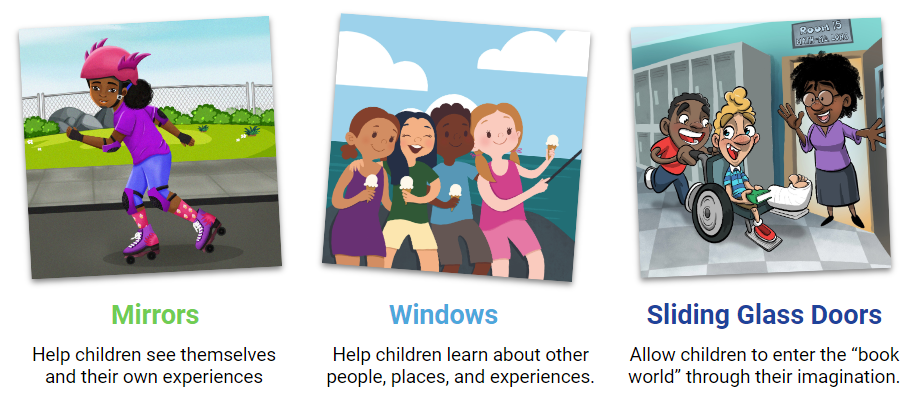
Rudine Sims Bishop explains her metaphor of "mirrors, windows, and sliding glass doors" to illustrate the critical role of diversity in literature. [01:33]
Explore a few of Just Right Reader’s diverse decodables!
Just Right Reader’s approach to crafting high-quality Science of Reading decodable books goes beyond teaching fundamental reading skills; it celebrates diversity by featuring characters and storylines that reflect students’ lives and get them excited about reading.
In honor of International Wheelchair Day, March 1st, we put together a few of our engaging and inclusive decodables that celebrate diversity!
Friends Are Amazing
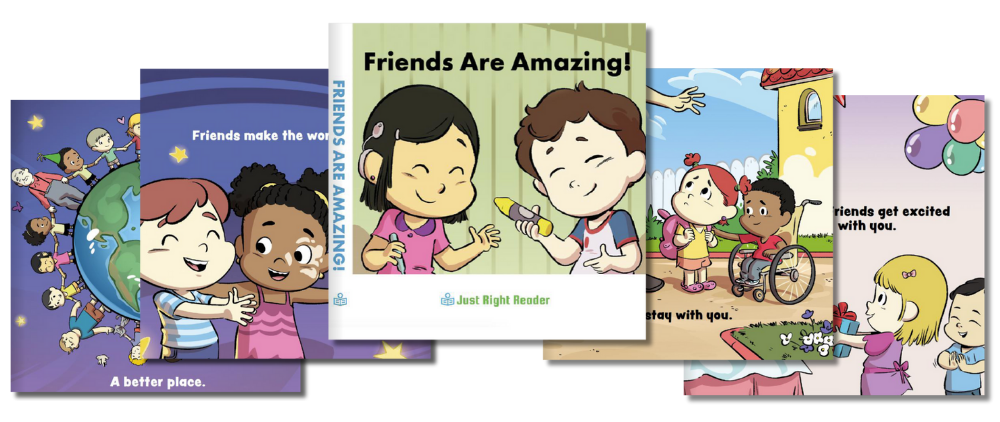
Learn different qualities that make a good friend.
Baby sign language skill: “share”
Learn more about our NEW Board Books for ages 0-3.
PJ Fun
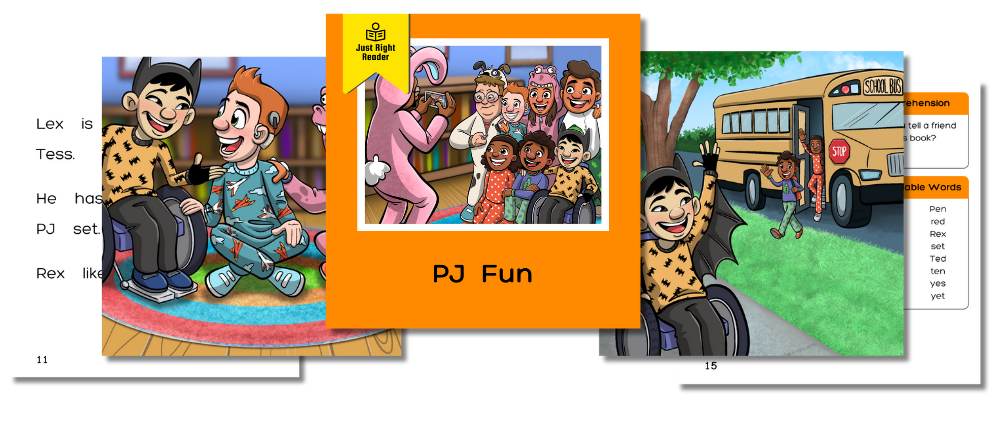
Follow Ted to school on PJ day to see his classmates' fun outfits.
Phonics skill: short e
King is the Man

Discover the exciting activities King likes to do with his family and friends.
Phonics skill: ng digraph
I Love My Hair
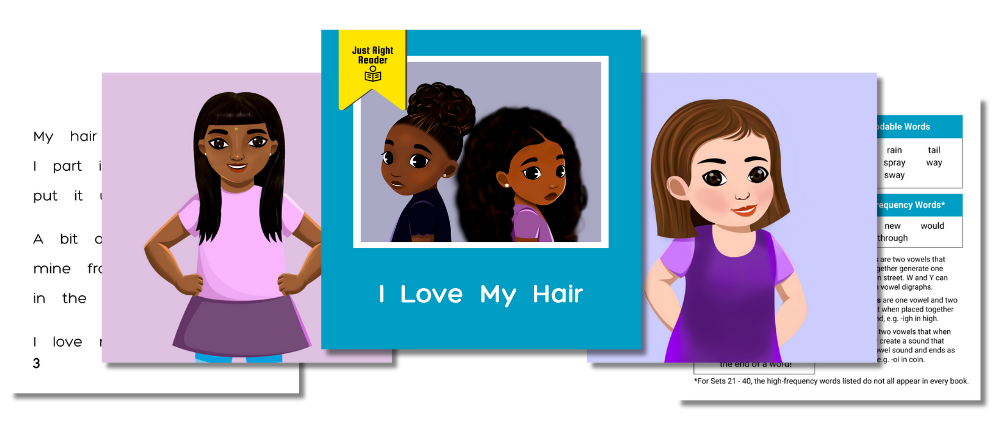
Explore a variety of special hairstyles from long to short, curly to straight, and ponytails to braids. Kids learn to love their unique hair.
Phonics skills: ai and ay vowel teams
Click here to read I Love My Hair.
The Math Whizzes
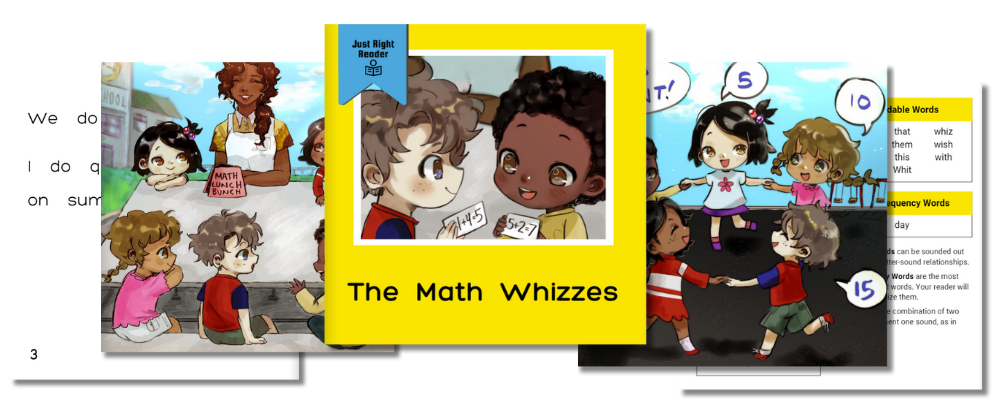
Join Ms. Whit’s math lunch bunch for some fun math games.
Phonics skill: mixed digraph review including wh
Click here to read The Math Whizzes.
Ready to learn more?
View our FREE decodable e-library for some of our favorite decodable books featuring diverse characters, relatable stories, and vibrant illustrations.
References
Bishop, R. S. (1990). Mirrors, windows, and sliding glass doors. Perspectives: Choosing and Using Books for the Classroom, 6(3).
Guthrie, J. T., Schafer, W. D., & Huang, C. W. (2001). Benefits of opportunity to read and balanced instruction on the NAEP. The Journal of Educational Research, 94(3), 145-162.
Guthrie, J. T., Wigfield, A., & You, W. (2012). Instructional contexts for engagement and achievement in reading. In S. L. Christenson, A. L. Reschly, & C. Wylie (Eds.), Handbook of research on student engagement (pp. 601-634). Springer.
Flood, A. (2018, July 17). Only 1% of children’s books have BAME main characters. The Guardian. Retrieved February 28, 2024
Lindsey, J. (2022, September 14). Research & redefining our paradigm [PowerPoint presentation]. Science of Reading Working Group; Atlanta, GA, United States.
